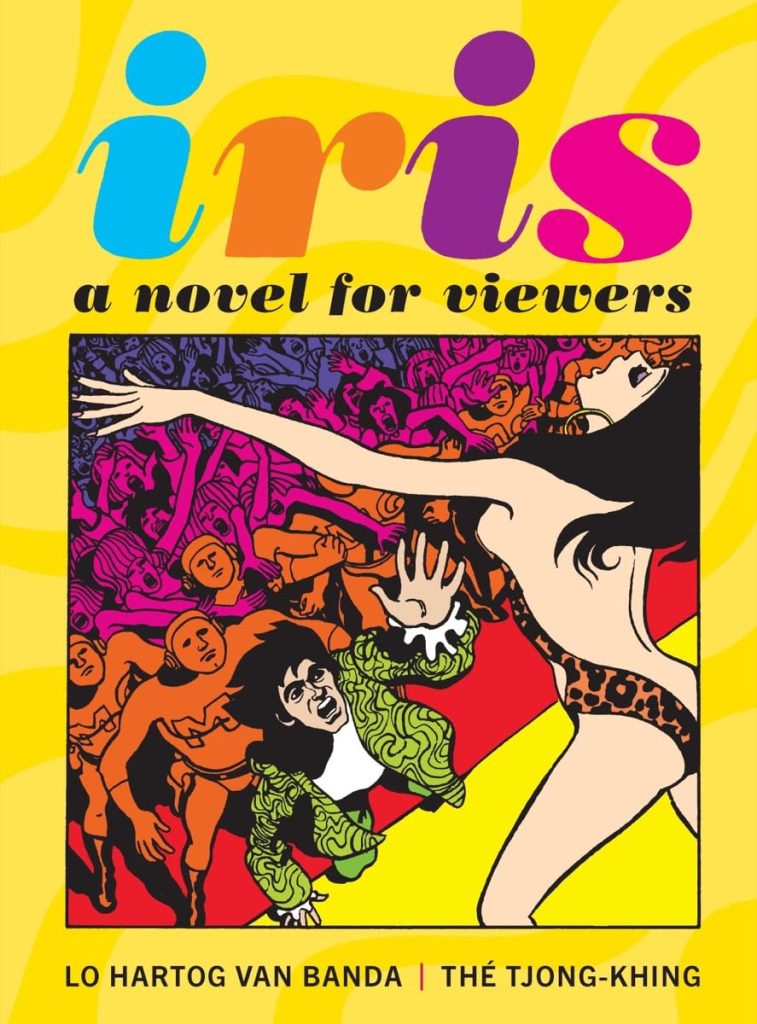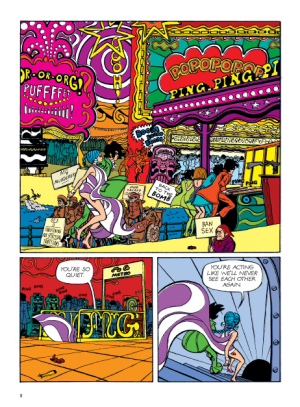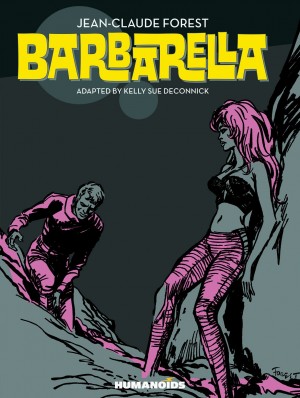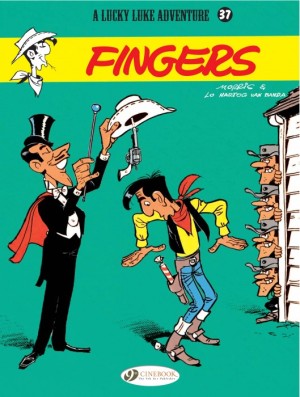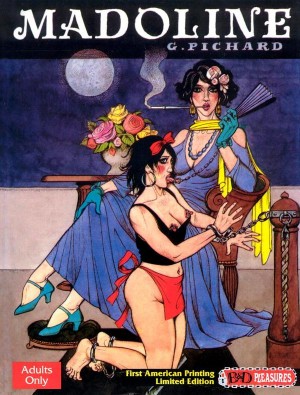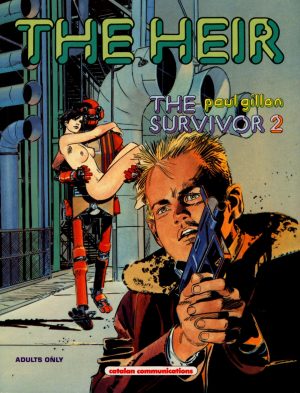Review by Frank Plowright
In the near future naked show dancer Iris dreams of singing stardom, and has an appointment with the organisation run by reclusive media mogul MG. Her boyfriend Mark is wary, but she’s determined.
Writer Lo Hartog van Banda, the ‘Lo’ being a contraction of Lodewijk, was prolific in his native Netherlands, but barely known beyond its borders. Yet Iris, originating in 1968, numbers him among the European creators extending the boundaries of comics in an experimental era. Iris was the first Dutch adult graphic novel, so odd at the time that van Banda’s introduction explains how it should be read. It’s a drama extrapolating the possibilities of the future, rather accurately as far as themes of identity and exploitative media moguls are concerned.
However, it’s not only characters who’d now be seen as exploitative. Working in a liberal country that greatly embraced new freedoms in the 1960s allowed Van Banda’s vision of a future where women being near naked is par for the course. Today that’s considered objectification, especially as the men might be flamboyantly dressed, but they largely wear more colourful versions of what men’s 1960s clothing. Van Banda’s little joke is that women may not wear much clothing, but the showing of natural hair is an outrage too far.
Thé Tjong-King is also little known outside the Netherlands, where his career was largely in children’s book illustration, but he began in comics. His view of the future is strongly based on individual compositions, with image based panels carrying the story. Symbolism abounds, and is evocatively presented, but Tjong-King wasn’t involved in the pop-art colouring, the 21st century work of Rudy Vrooman, and so important to the overall effect. An extended and very theatrical approximation of hallucinogenic experience, is relevant to the plot, and so much of how it resonates is due to Vrooman.
Van Banda and Tjong-King both strived to do more with comics than children’s material permitted, and were heavily influenced by French albums. Barbarella seems an obvious touchstone, but back of the book information instead namechecks Adventures of Jodelle. Mark’s journey of rescue begins with Iris’ commodification, and occurs amid deliberately staged scenes, a couple almost song and dance sequences, but what may have been groundbreaking in 1968 now seems a slight satire rooted to the times.
This is despite the informative and detailed contextualisation via essays and illustrations of influences, proving that however it now reads, Iris is significant as pioneering, influential and an example of erotic freedom.
